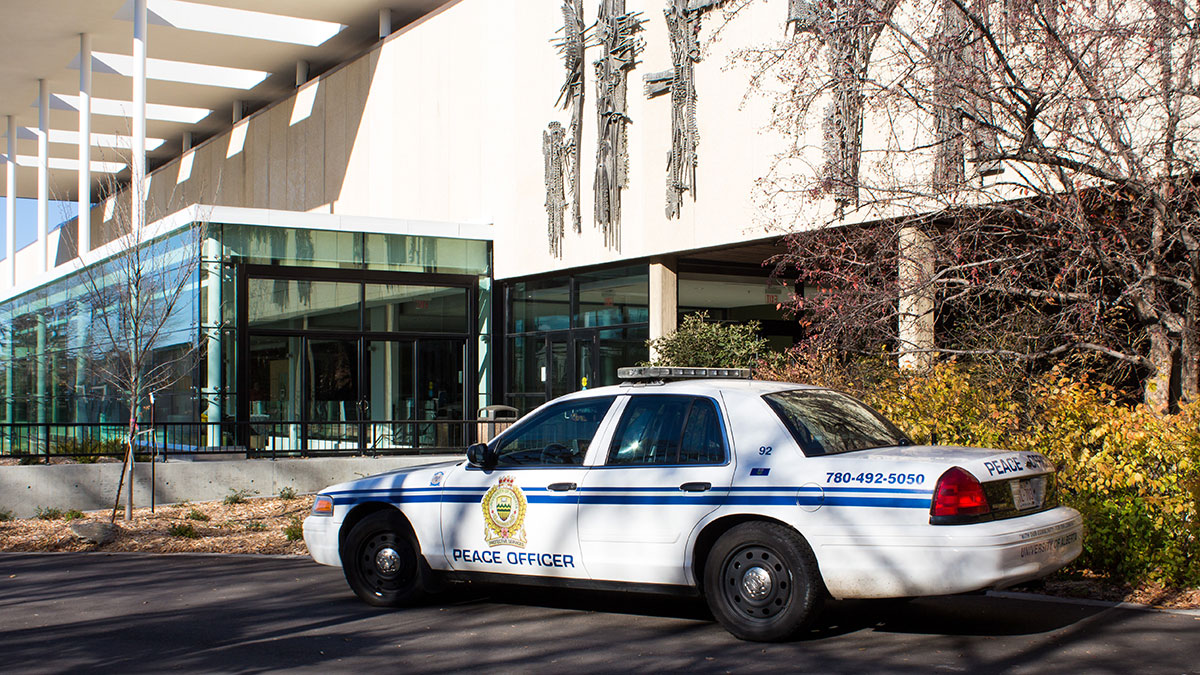UAPS to remain focused on ‘community education’ in the face of temporary ability to grant provincial fines for COVID-19 restriction violations
Marcel Roth, UAPS director, said that issuing provincial fines is the last resort when responding to COVID-19 restriction violations.
 Christina Varvis
Christina VarvisThough University of Alberta Protective Services (UAPS) can now issue fines for COVID-19 restriction violations, they emphasize their main focus will remain on educating the community.
The temporary ability to issue fines originated when the province announced a state of emergency and enhanced COVID-19 restrictions on November 24. The provincial government granted peace officers the ability to enforce provincial public health orders. This means UAPS can now issue $1,000 fines for violating said provincial restrictions, and the fine can be raised up to $100,000 through the court system.
Despite this new ability to issue fines on the behalf of the provincial government, UAPS director Marcel Roth said not much will change in their approach to managing the pandemic on campus.
According to Roth, UAPS will continue to focus on educating the community about the restrictions and giving warnings, rather than giving out tickets.
“It doesn’t really change much since when the COVID-19 pandemic has been with us in March,” he said. “We’ve been working with the community to help educate and primarily warn people who continue to need guidance or education about the measures on campus.”
Roth explained that giving out provincial fines is actually UAPS last resort when it comes to managing pandemic restrictions on campus. Instead, UAPS said if a student were non-compliant with the restrictions multiple times, they would first look at the Code of Student Behaviour.
“It’s a better option for us,” Roth explained. “It’s a lesser violation and that would be something we would look at before having to resort to a provincial violation.”
Like any other violation of the Code of Student Behaviour UAPS reports to, Roth said a variety of factors would be considered when responding to a violation of COVID-19 restrictions. This includes looking at mitigating factors such as if the individual was cooperative or hasn’t violated the code before, and aggravating factors which include assault, and a repeated history of the violation.
So far, UAPS hasn’t issued any fines or violations regarding the violation of COVID-19 restrictions on campus and has only responded to 50 complaints since March.
“We’ve been very pleased with how few times we have been involved,” Roth said.
From March 31 to June 15 — when campus first went into quarantine — UAPS received 40 complaints about COVID-19 restriction violations, but all cases were dealt with through warnings.
From mid-June to November 26, there were eight documented complaints, but once again, there were no fines issued.
Since last Friday, UAPS dealt with two complaints, one of which was dealing with three people unaffiliated with campus who were not wearing masks. The group complied and left campus.
“Our main goal is to educate and to support the safety of the community,” Roth said.
For now, Roth said their main focus remains on enforcing the university’s own COVID-19 restrictions, especially focusing on community members wearing masks and maintaining a social distance of two metres. So far, the province hasn’t made clear how long these temporary changes will last for UAPS.
In the meantime, Roth encourages the U of A community to stay up to date with both the university’s and the provincial government’s COVID-19 guidelines and restrictions.
“We work as a partner with our community to ensure safety, and this is just another example of how we can work with the University Alberta community to ensure a safe environment for everyone that has to be on campus.”




